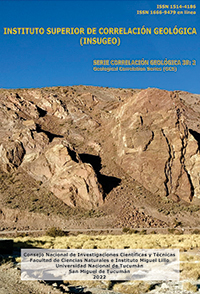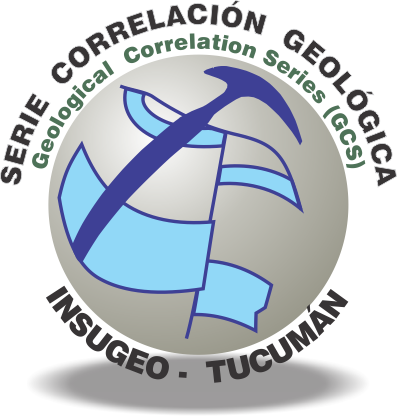Serie Correlación Geológica 38 (2)
Geoturismo en el valle de Tafí: el desarrollo de georutas como contribución al conocimiento geocientífico de la sociedad
José Pablo López | Walter Manuel Medina | Laura Iudith Bellos | Facundo Martínez
Descargar trabajo en formato PDFResumen
Este trabajo se enmarca en la temática del patrimonio geológico como recurso y utiliza el contexto geológico del valle de Tafí, en la provincia de Tucumán, noroeste de Argentina, para evaluar su potencial como destino geoturístico. El área de estudio es el valle de Tafí, una cuenca intermontana emplazada en el extremo norte de las Sierras Pampeanas Noroccidentales. Corresponde a una depresión tectónica limitada al norte y al este por las Cumbres Calchaquíes y al oeste y sur por la Sierra de Aconquija, siendo atravesada por una estructura de carácter regional denominada Megafractura de Tafí. Los geositios son aquellos lugares en los que afloran, o son visibles, los rasgos geológicos más característicos y mejor representados de una región. Su conocimiento, inventario, divulgación y protección es de gran importancia, y presentan valor singular desde el punto de vista científico, pedagógico, cultural o turístico. A partir de una primera etapa en la que se realizó un inventario de los sitios de interés (SIG) y del análisis de los mismos, se establecen dos georutas denominadas Georuta Litológica y Georuta Geomorfológica como valioso recurso para desarrollar el conocimiento espacial y temporal del valle de Tafí a lo largo del tiempo geológico. La primera de ellas contiene geositios cuyas características principales se basan en su litología y la segunda agrupa aquellos geositios en los que se exponen los procesos genéticos desarrollados bajo condiciones de intemperismo y dinámica externa.
Abstract
GEOTOURISM IN THE TAFÍ VALLEY: THE DEVELOPMENT OF GEOROUTES AS A CONTRIBUTION TO THE GEOSCIENTIFIC KNOWLEDGE OF SOCIETY. This contribution is referred to the geoheritage as a resource and is framed in the geological context of the Tafí del Valle zone, in the province of Tucumán, Northwest Argentina, with the aim to evaluate its geotourism potential. The study area is the Tafí valley, an intermontane basin located in the northern tip of the Sierras Pampeanas Noroccidentales. It corresponds to a tectonic depression limited to the north and east by the Cumbres Calchaquíes and to the west and south by the Sierra de Aconquija, being crossed by a regional structure called the Tafí Megafracture. Geosites are those places where the most characteristic and best represented geological features of a region outcrop. Their knowledge, inventory, disclosure and protection is of great importance due their scientific, pedagogical, cultural and tourist value. From a first stage which consisted of the analysis and the inventory of the sites of interest (SIG), two georoutes called Lithological Georoute and Geomorphological Georoute are proposed. They represent a valuable resource to develop spatial and temporal knowledge of the Tafí valley throughout geological time. The first one includes all the geosites whose main characteristics are based on their lithology, while the other includes those geosites in which the genetic processes developed under weathering conditions are exposed.






